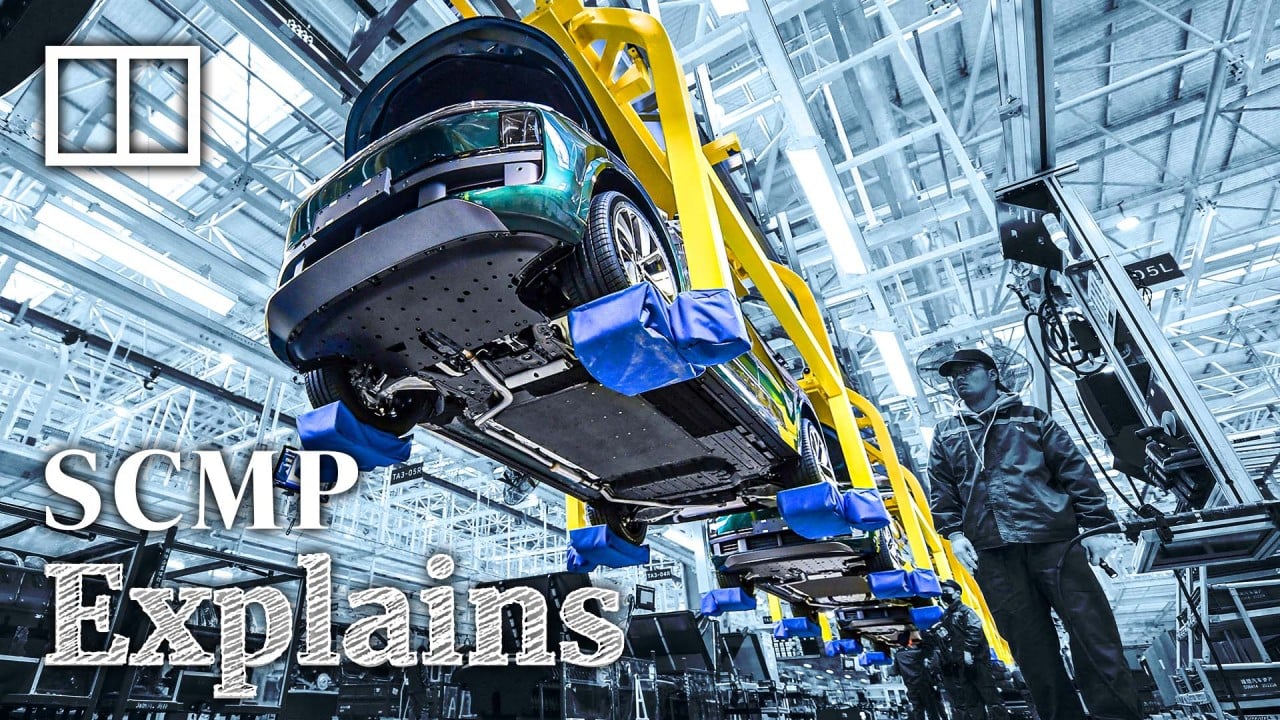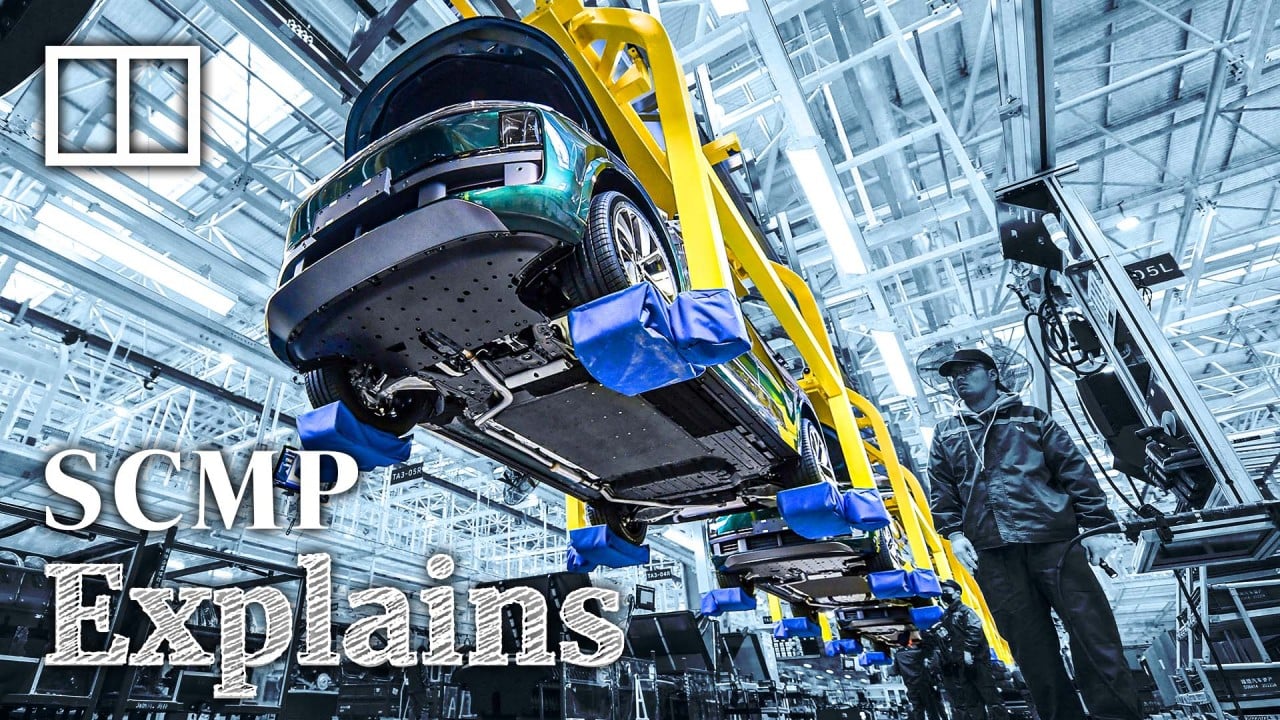Chinese electric vehicle (EV) and battery makers are continuing to expand their presence in emerging markets like Latin America – despite heightened political resistance from the European Union and United States – as the country looks to cement its leading position in the industry.
EV giant BYD and battery producer Contemporary Amperex Technology Limited (CATL), two firms among many in the rapidly expanding field, have announced plans to make inroads into overseas markets.
The former signed a multi-year partnership with Uber to bring its cars to Europe and Latin America on Wednesday, and the latter has formed a consortium with mining company CMOC to acquire mineral rights for two lithium brines in Bolivia and opening a new avenue for the supply of the substance, an essential raw material in battery manufacturing.
“In the coming five to 10 years, regions such as Southeast Asia, Europe, Latin America and parts of Africa are expected to have high demand for Chinese-made cars and electric vehicles,” said Matteo Giovannini, a senior finance manager at the Industrial and Commercial Bank of China and a non-resident associate fellow at the Centre for China and Globalization.
Giovannini cited economic growth, urbanisation, government policies, environmental regulations, advancements in EV technology and changing consumer preferences as reasons for the spike.
The trend of Chinese EV and battery makers building overseas factories or taking part in joint ventures foreign companies would “intensify”, Giovannini added, as cost and efficiency considerations weigh on companies looking to expand along with a pressing need for diversification against risk. Economic incentives and global market integration are also playing a role, he said.
As numerous countries have committed themselves to meet carbon emission reduction targets within a decade – particularly in Europe – EVs are quickly moving into the mainstream. Models from newer firms like Tesla and storied legacy outfits like BMW, General Motors and Toyota are in fierce competition with their Chinese counterparts.
Figures from the China Association of Automobile Manufacturers as quoted by Fitch Ratings showed that EV exports from the world’s second-largest economy rose 30.5 per cent year on year for the first half of 2024, a total shipment of 2.8 million units.
“We expect demand for China-made cars and EVs to transform into demand for Chinese-branded or Chinese-licensed cars and EVs over the next decade,” said Yang Jing, director of Asia-Pacific Corporate Ratings at Fitch.
Chim Lee, senior analyst for Asia (China) at the Economist Intelligence Unit (EIU), said that some markets will see explosive EV demand growth thanks to copious incentives and subsidies.
“Even in the conventional internal combustion engine passenger car segment, Chinese proprietary brands have been gaining market share in certain geographies like Saudi Arabia,” he added.
Nezha Automobile, a subsidiary of Hozon New Energy Auto, has made strides in the Southeast Asian, Latin American, Middle Eastern and African markets, launching local subsidiaries in Brazil and Indonesia.
“Some countries have rolled out rules that require carmakers to invest in factories there if imports have exceeded certain levels,” said Zhang Xiang, general secretary of the International Intelligent Vehicles Engineering Association, an industry trade group. “For example, Thailand and Brazil have these policies.”
Some big Chinese carmakers would choose to make overseas investments, Zhang said, because high demand in those markets would justify the expense and provide a reasonable return.
BYD, the world’s largest EV maker by units sold, has signed deals for production facilities in Brazil and Chile, with construction already under way on a complex in Brazil. The company is also scouting potential locations for a factory in Mexico.
The global EV supply chain is already shifting to accommodate the upswell in demand, as countries seek to maximise the benefits of the resources or advantages they have in relation to the sector.
A February report from research provider Rhodium Group said some governments in emerging economies have begun to restrict exports of unrefined minerals, citing the example of Indonesia’s controls on nickel that have brought in more foreign direct investment in local processing.
“So far it appears that Chinese companies could emerge as the main beneficiaries of the bans and nationalisation plans,” said Gregor Sebastian, a senior analyst with the group.
“In comparison to global rivals, [Chinese] firms often have closer ties to downstream customers and financial resources to invest in local refining.”
To evade scrutiny, Chinese firms are becoming increasingly creative in their overseas engagements
As markets with major automotive sectors are concerned their local industries will be affected by imports, Lee at EIU noted that governments are using a combination of “carrots” and “sticks” to attract Chinese investment and localised production, with investment incentives and import tariffs serving a complementary function.
BYD, Great Wall Motor and SAIC Motor have responded in kind, with plans to build manufacturing facilities in European countries such as Hungary and Turkey. Leapmotor and Chery Automobile, meanwhile, have announced plans to work with joint venture partners in Poland and Spain, respectively.
Stephen Olson, a senior adjunct fellow at the Pacific Forum and a visiting lecturer and non-resident fellow at the Yeutter Institute, said that Chinese companies now “expect joint ventures to be pursued primarily to obtain some specific strategic advantage the foreign partner could provide”.
Regarding the US, the Rhodium report said a fraught political situation and regulatory uncertainties would slow the pace of Chinese carmakers entering the market, but it is “too big” to ignore.
“To evade scrutiny, Chinese firms are becoming increasingly creative in their overseas engagements. For example, Geely-owned EV producer Polestar aims to outsource part of its vehicle production to Renault’s South Korean plant in Busan before the vehicles are shipped to the US,” Sebastian said.
“The same is true for CATL’s licensing arrangement with Ford, which could be compliant based on current rules. Ford has pushed for CATL’s continued involvement in the US market, despite still-heavy political scrutiny over the deal.”



